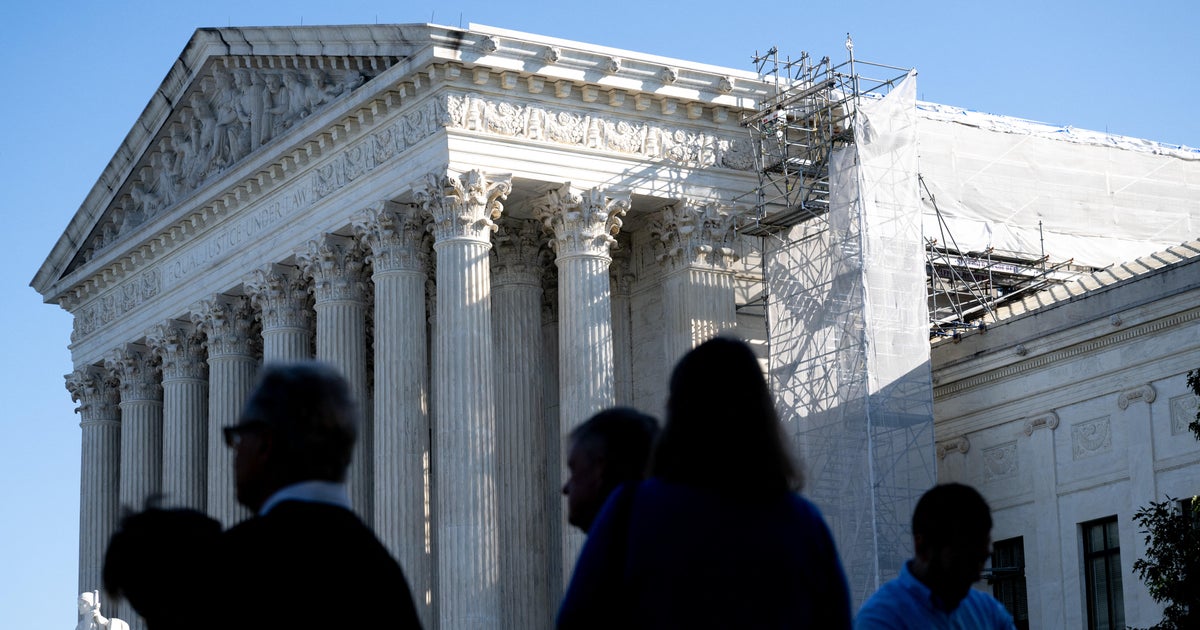Washington — The Supreme Court on Tuesday rejected a lower court ruling that offered protection from liability. Texas law enforcement officers arrested a local citizen journalist after she sought information from a police source.
In the case of journalist Priscilla Villarreal, known to her readers in Laredo, Texas as “Lagordiloca,” the First Amendment’s guarantee of a free press is pitted against the doctrine of qualified immunity, which provides legal protection for police and other government officials.
Villarreal’s challenge caught the attention of a range of reporters, major news organizations and journalism nonprofits who have argued that the right to request information from public officials is fundamental to the practice of journalism.
In its brief order, the Supreme Court swept aside the lower court’s decision that protected the police officers involved in her arrest and ordered additional proceedings.
Described as the “most influential journalist” in Laredo, Villarreal publishes information about local crime, traffic and other news on her Facebook page, “Lagordiloca News.” Her reporting sometimes confuses local government officials, according to court documents, including Laredo police.
In 2017, their frustrations boiled over. Villarreal had published two news stories based on tips from local citizens, one naming a US Border Patrol agent who died by suicide and a second relaying information about a fatal traffic accident and the Houston family injured in the accident. For both, she contacted a Laredo police officer who confirmed the information before the stories were published on her Facebook page.
Months later, Villarreal was arrested for allegedly violating a state law that makes it a crime for someone to request or receive information from a government official that has not yet been made public with the intent to obtain benefits.
In the 23 years it has been on the books, the statute has never been implemented, according to her lawyers.
Villarreal turned himself in and the criminal charges were dismissed after a local judge ruled the law was unconstitutionally vague. She subsequently sued police and prosecutors over her arrest, arguing that her First, Fourth and 14th Amendment rights had been violated.
The officials tried to dismiss the case, claiming they had qualified immunity. The doctrine protects public officials from lawsuits arising from workplace conduct unless they violate clearly established constitutional rights. A federal district court agreed, but the decision was reversed by a three-judge panel of the U.S. Court of Appeals for the 5th Circuit.
“If the First Amendment means anything, it certainly means that a citizen journalist has the right to ask a public official a question without fear of imprisonment,” Judge James Ho, appointed by former President Donald Trump, wrote for the judges. “Yet that is exactly what happened here: Priscilla Villarreal was put in jail for asking a police officer a question. If that is not a clear violation of the Constitution, it is difficult to imagine what would be.”
But all of the 5th Circuit judges echoed Villarreal’s case, voting 9-7 in January to uphold the district court’s dismissal.
The divided 5th Circuit ruled that prosecutors and Laredo police qualified immunity, concluding that they reasonably believed Villarreal violated state law when she asked an “unofficial” government source for information, rather than waiting for an official police report, and took advantage of it. The nine justices also rejected the panel’s finding that Villarreal’s arrest violated the First Amendment.
Ho, who disagreed, wrote that the majority’s reasoning was “a recipe for government officials to join forces with state or local lawmakers to do whatever they want.” It is a level of blind reverence and faith in the power of government that our founders would not recognize. “
In their appeal of the 5th Circuit’s decision to the Supreme Court, Villarreal’s attorneys wrote in a filing that longstanding precedent “leaves no doubt that Villarreal’s arrest for soliciting the government for information and publishing the response violated the First Amendment – and any reasonable official would do so. have known that.”
They warned that upholding the 5th Circuit’s decision entitles law enforcement to qualified immunity for using state laws as justification for First Amendment violations.
“Without a reversal, the chill of the decision below will only spread further as the ever-expanding criminal codes provide a sampling of statutes that public officials can use against unfavorable speech,” Villarreal’s legal team warned.
But Texas officials, led by Attorney General Ken Paxton, argued that they reasonably believed Villarreal was trying to leak nonpublic information for her benefit.
